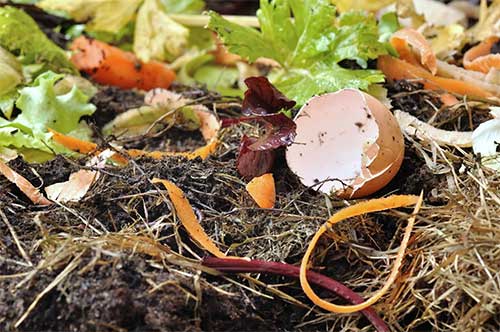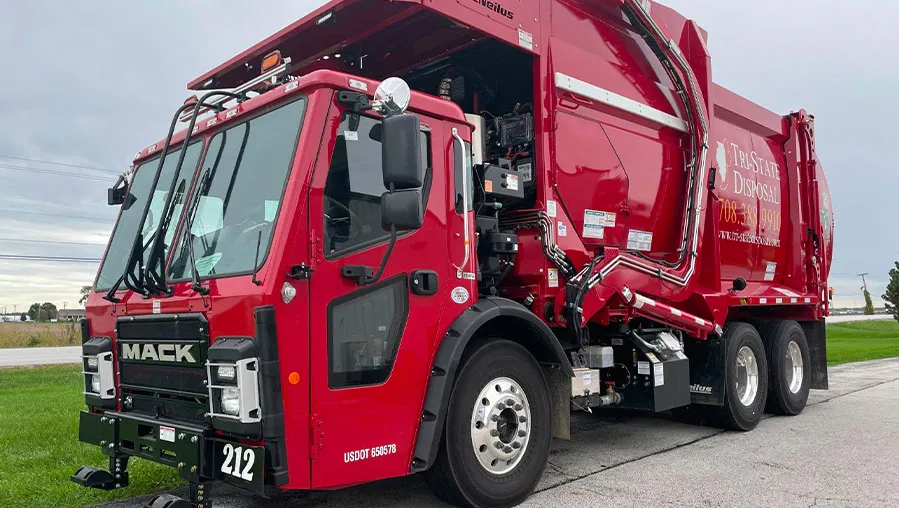If you want ways to reduce how many trash bags you send to the curb each week, you might already actively recycle and reuse items instead of throwing them away. However, if you want to reduce your waste even further, you might look into composting.

Making your own compost can be rewarding. By choosing to compost, you help to reduce your ecological footprint and create a resource that gives back to the environment. Learn more about how composting can benefit your household and how you can get started.
Benefits of Composting
Did you know that around half of the garbage that people put in the trash can each week is compostable? Food scraps make up half of all compostable discarded waste, but yard trimmings, paper and cardboard, and even scraps of wood are compostable materials. Sending these items to the compost instead of to the landfill offers some amazing benefits.
Basic Sustainable Waste Management
As someone who is environmentally conscious, you always look for ways to make your way of life more sustainable. Composting is one of the most sustainable forms of waste management because organic materials can break down naturally.
When thrown in the landfill, organic trash does not return to nourish the earth. Some organic material is incinerated or buried, but the site is sealed to prevent any leaching of more harmful chemicals from non-organic waste materials.
Another reason why personal composting is sustainable is that you handle your own waste. Some communities, however, do promote composting and support it as a way to reduce landfill waste, but it is most sustainable when you do it at home. In cities or areas where composting at home is not possible, you might still find compost initiatives near you to support.
Financial Savings
Did you know you can save money by choosing to compost? You can use your own compost as fertilizer for your garden and indoor plants. But you also save money simply by waste reduction. You use fewer trash bags because you have less trash. You might even be able to choose a less expensive pickup option if your trash fills up less often.
Long term, the more people who recycle and compost will also save money as a community. Home composting is low-cost, and if less landfill space is required, tax money can go to support causes other than building more trash sites.
Natural Soil Enrichment
Finally, with compost, you get natural soil enrichment, which also provides a number of benefits. You don’t often need bought fertilizer for plants — you can simply use your compost bin for extra nutrients. You can spread compost on your lawn. Plants in compost-rich soil need watering less often and they stay healthier.
Compost also improves soil quality and drainage because compost can remove water pollutants. Compost increases urban stormwater pollutant filtration by 60–95%, which invites healthful organisms, like earthworms, to break down organic compounds more efficiently.
The more you use your compost, the less hands-on you need to be about regulating the health of your soil and watering your plants.
Process of Composting
You might wonder how to get started with composting at home. Even with all the benefits, some people can feel intimidated by the idea of keeping a compost heap. However, the basics of composting are simple. You begin with:
- A good location. Your compost bin should be a dry area close to a water source that has at least partial shade.
- Brown material. Brown material is essentially yard waste. Leaves, twigs, and bark chips form the foundation of your compost bin. Shredded paper and cardboard can also compost as brown material.
- Green material. Green material includes grass clippings, fruit peels, vegetable scraps, and other food items.
Contrary to popular belief, you do not need a bin in order to compost. You can just create a pile with browns, greens, and some water. However, if you want more containment, you can get a bin with ventilation holes.
Every so often, you should turn your compost with a shovel or rake or spin the compost in the bin. When adding food waste to the pile, bury it in the establish mulch of brown and green material. The bottom of the compost pile will eventually resemble soil with a deep brown, rich color and moist texture. The compost is ready to use in gardening and other enrichment projects at this point.
Keep in mind that not all foods are suitable for compost. For example, cheese and other dairy products will cause the compost pile to stink and attract flies and larger animals, like raccoons and rats. Meat is also unsuitable for compost because it will rot, giving your compost a foul odor.
You can add eggshells, peelings, straw, droppings and bedding from animal cages, tea bags, and even cloth made from cotton such as old t-shirts and dishrags to compost because they will eventually break down.
For more information about waste management, recycling, and sustainable living, contact us at Tri-State Disposal.



